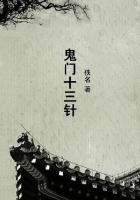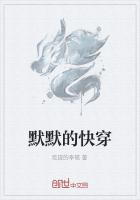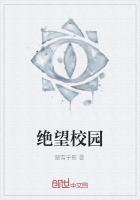IN THE FIRST place, then, it would seem that the Roman king personated no less a deity than Jupiter himself. For down to imperial times victorious generals celebrating a triumph, and magistrates presiding at the games in the Circus, wore the costume of Jupiter, which was borrowed for the occasion from his great temple on the Capitol; and it has been held with a high degree of probability both by ancients and moderns that in so doing they copied the traditionary attire and insignia of the Roman kings. They rode a chariot drawn by four laurel-crowned horses through the city, where every one else went on foot: they wore purple robes embroidered or spangled with gold: in the right hand they bore a branch of laurel, and in the left hand an ivory sceptre topped with an eagle: a wreath of laurel crowned their brows: their face was reddened with vermilion; and over their head a slave held a heavy crown of massy gold fashioned in the likeness of oak leaves. In this attire the assimilation of the man to the god comes out above all in the eagle-topped sceptre, the oaken crown, and the reddened face. For the eagle was the bird of Jove, the oak was his sacred tree, and the face of his image standing in his four-horse chariot on the Capitol was in like manner regularly dyed red on festivals; indeed, so important was it deemed to keep the divine features properly rouged that one of the first duties of the censors was to contract for having this done. As the triumphal procession always ended in the temple of Jupiter on the Capitol, it was peculiarly appropriate that the head of the victor should be graced by a crown of oak leaves, for not only was every oak consecrated to Jupiter, but the Capitoline temple of the god was said to have been built by Romulus beside a sacred oak, venerated by shepherds, to which the king attached the spoils won by him from the enemy's general in battle. We are expressly told that the oak crown was sacred to Capitoline Jupiter; a passage of Ovid proves that it was regarded as the god's special emblem.
According to a tradition which we have no reason to reject, Rome was founded by settlers from Alba Longa, a city situated on the slope of the Alban hills, overlooking the lake and the Campagna. Hence if the Roman kings claimed to be representatives or embodiments of Jupiter, the god of the sky, of the thunder, and of the oak, it is natural to suppose that the kings of Alba, from whom the founder of Rome traced his descent, may have set up the same claim before them. Now the Alban dynasty bore the name of Silvii or Wood, and it can hardly be without significance that in the vision of the historic glories of Rome revealed to Aeneas in the underworld, Virgil, an antiquary as well as a poet, should represent all the line of Silvii as crowned with oak. A chaplet of oak leaves would thus seem to have been part of the insignia of the old kings of Alba Longa as of their successors the kings of Rome; in both cases it marked the monarch as the human representative of the oak-god. The Roman annals record that one of the kings of Alba, Romulus, Remulus, or Amulius Silvius by name, set up for being a god in his own person, the equal or superior of Jupiter. To support his pretensions and overawe his subjects, he constructed machines whereby he mimicked the clap of thunder and the flash of lightning. Diodorus relates that in the season of fruitage, when thunder is loud and frequent, the king commanded his soldiers to drown the roar of heaven's artillery by clashing their swords against their shields. But he paid the penalty of his impiety, for he perished, he and his house, struck by a thunderbolt in the midst of a dreadful storm. Swollen by the rain, the Alban lake rose in flood and drowned his palace. But still, says an ancient historian, when the water is low and the surface unruffled by a breeze, you may see the ruins of the palace at the bottom of the clear lake. Taken along with the similar story of Salmoneus, king of Elis, this legend points to a real custom observed by the early kings of Greece and Italy, who, like their fellows in Africa down to modern times, may have been expected to produce rain and thunder for the good of the crops. The priestly king Numa passed for an adept in the art of drawing down lightning from the sky. Mock thunder, we know, has been made by various peoples as a rain-charm in modern times; why should it not have been made by kings in antiquity?
Thus, if the kings of Alba and Rome imitated Jupiter as god of the oak by wearing a crown of oak leaves, they seem also to have copied him in his character of a weather-god by pretending to make thunder and lightning. And if they did so, it is probable that, like Jupiter in heaven and many kings on earth, they also acted as public rain-makers, wringing showers from the dark sky by their enchantments whenever the parched earth cried out for the refreshing moisture. At Rome the sluices of heaven were opened by means of a sacred stone, and the ceremony appears to have formed part of the ritual of Jupiter Elicius, the god who elicits from the clouds the flashing lightning and the dripping rain. And who so well fitted to perform the ceremony as the king, the living representative of the sky-god?
If the kings of Rome aped Capitoline Jove, their predecessors the kings of Alba probably laid themselves out to mimic the great Latian Jupiter, who had his seat above the city on the summit of the Alban Mountain. Latinus, the legendary ancestor of the dynasty, was said to have been changed into Latian Jupiter after vanishing from the world in the mysterious fashion characteristic of the old Latin kings. The sanctuary of the god on the top of the mountain was the religious centre of the Latin League, as Alba was its political capital till Rome wrested the supremacy from its ancient rival.

